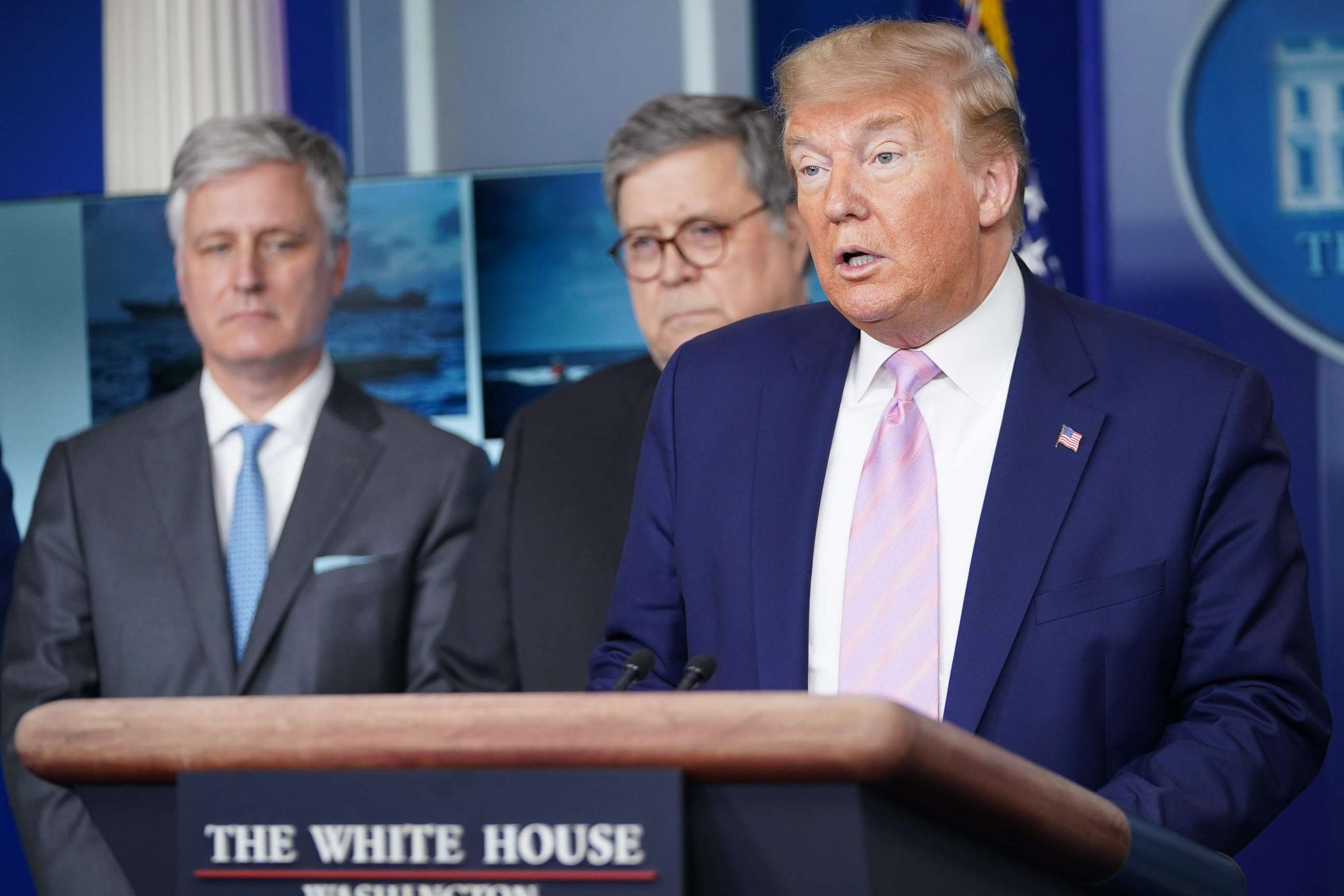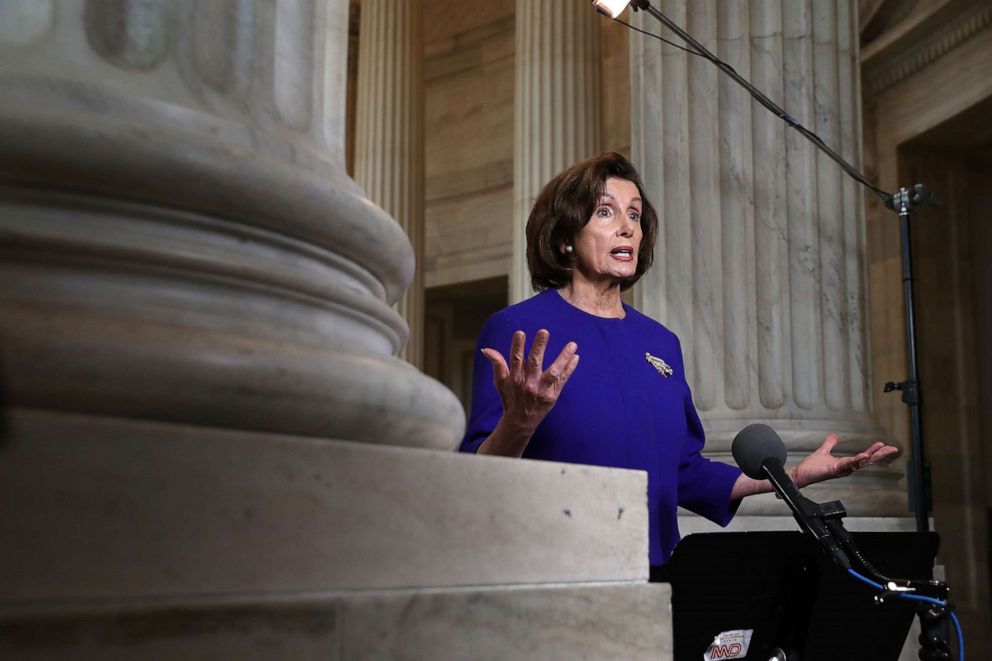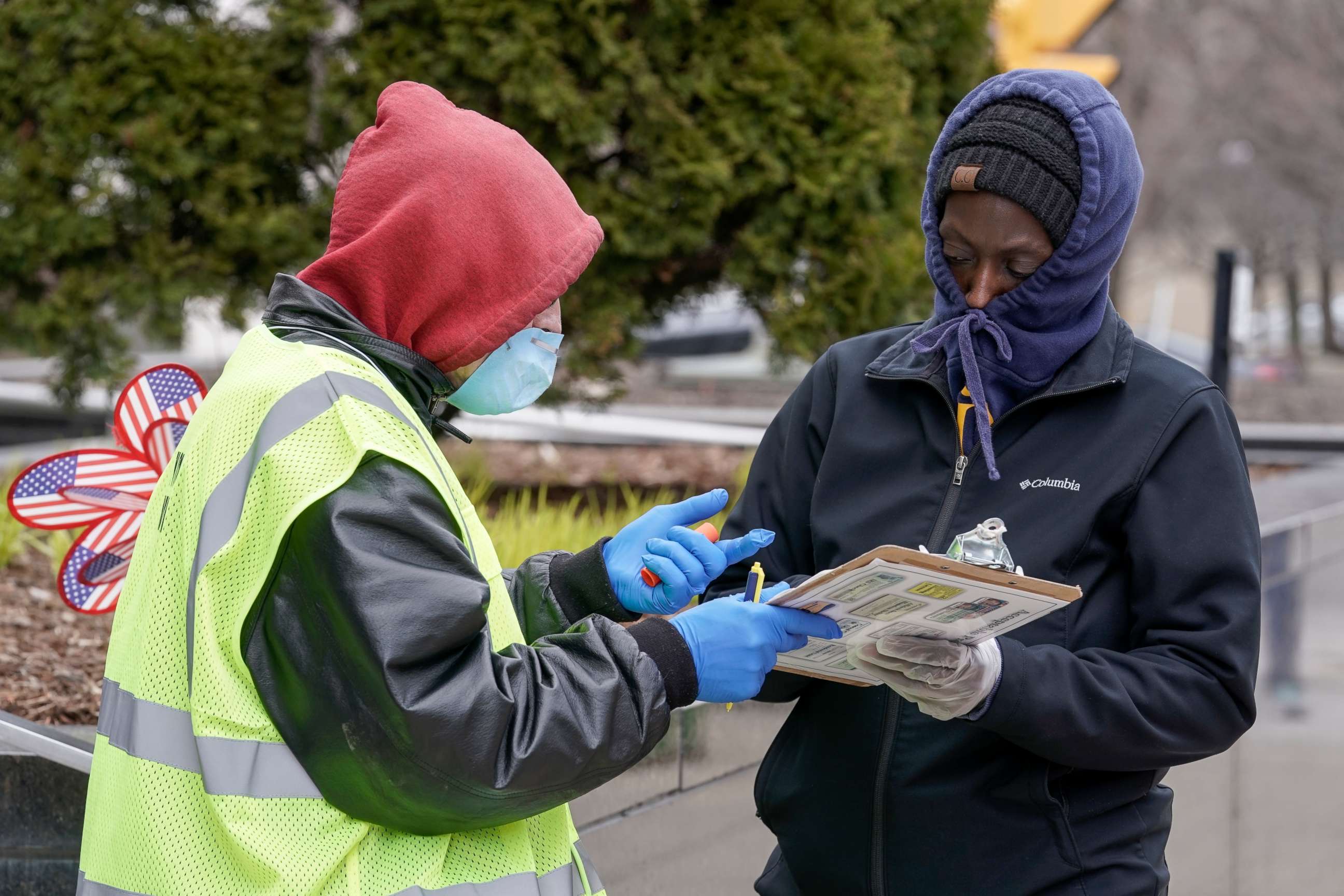The Note: Policy choices outweigh political posturing as coronavirus threats grow
The current crisis hasn’t distracted Trump from his political battles.
The TAKE with Rick Klein
There are changing tunes, and there are changing actions.
President Donald Trump this week took a new, more realistic public stance toward the unspeakable human toll that the novel coronavirus emergency is likely to exact. The self-described "cheerleader" has less to cheer, even if he isn't about to admit any shortcomings in the federal response.
But a series of policy choices are speaking more loudly at the moment anyway. The Trump administration chose not to reopen Obamacare enrollment, despite the enormous spike in people losing their jobs and therefore their health care, while court efforts to get all of Obamacare declared unconstitutional continue with the support of the Department of Justice.
Trump was critiqued early and loudly by some governors for not involving the military in a bigger way to expand health-care capabilities and responses. Late Wednesday, Trump announced a major new military effort -- this one to address what he called the "scourge" of drug smuggling, which the president claimed would dovetail with efforts to control the virus.

The current crisis hasn't distracted Trump from his political battles -- fights with enemies both real and imagined that he finds beneficial. Some state and local officials have been grumbling about a president who continues to play favorites, in both words and actions.
Policy choices that Trump and his administration make from here are more likely to be remembered than any political sniping. That doesn't mean there won't be political implications for choices being made in the midst of this crisis.
The RUNDOWN with MaryAlice Parks
New unemployment numbers out Wednesday underscore the many different ways this pandemic is taking an unbelievable toll on American families.
The "stay at home" and social distancing orders, designed to slow the spread of the deadly virus that has already taken thousands of lives, have clearly highlighted and exacerbated pre-existing racial and socio-economic inequalities coast-to-coast too.

As students are asked to learn online from home, we are reminded that there is a great digital divide -- so many families do not have computers or internet.
While many Americans, laid off in this crisis, are still working to file for unemployment insurance, battling through crashed and overloaded websites, others are worried they may not qualify at all, if they worked mostly one-off jobs in this growing gig economy.
According to a report released last year, more than two million Americans did not have regular access to reliable running water or clean sanitation. It's a heartbreaking statistic when hand-washing is key to keeping families healthy.
House Democrats Tuesday said they were moving full-steam ahead on drafting language for the next large stimulus package and this time they are focusing on the nation's infrastructure, including rebuilding water systems, investing in community centers that are on the front lines of the fight against the coronavirus and expanding broadband technology including teleworking and telemedicine.
The TIP with Kendall Karson
The coronavirus is drastically transforming the 2020 election -- with the primary calendar crumbling as now 15 states postpone their contests and one state goes it alone, staying on course to hold a primary next week.
On Wednesday, West Virginia became the latest state to move its primary, opting to delay until June 9, yet in battleground Wisconsin, the state appears in chaos with less than a week until its spring election. A federal judge, who is currently weighing the decision to suspend the Badger State's election, said in a public hearing that while he thinks "it's a really bad public policy idea," and that state leaders "should stop it for health reasons," he doesn't believe it's his "place" -- suggesting the state will have in-person voting come Tuesday despite the coronavirus threat.

The hearing came shortly after Vermont Sen. Bernie Sanders joined calls to postpone the election, a posture that he now shares with the Democratic National Committee, at least in Wisconsin. During closing arguments, an attorney for the DNC and the Wisconsin Democratic Party, who brought one of the three lawsuits challenging the election in this case, told the federal judge that the national and the state parties "have come around to support" a delay -- a significant reversal in their stance -- and one that breaks with Democratic Gov. Tony Evers.
Nevertheless, U.S. District Judge William Conley said he will deliver his decision on Wisconsin's contest "as soon as possible."
THE PLAYLIST
ABC News' "Start Here" podcast. Thursday morning's episode features ABC News Senior National correspondent Byron Pitts, who tells us about his interview with Vice President Mike Pence amid questions about the Trump Administration's coronavirus response. Then, ABC News contributor and former Homeland Security Adviser Tom Bossert explains the challenges we'll face once the country is opened up. And, we check in with Maria Givens, a freelance writer who has been documenting the struggles of Native American tribes during the pandemic. http://apple.co/2HPocUL
ABC News' "Powerhouse Politics" podcast. ABC News Chief White House Correspondent Jonathan Karl will join ABC News Political Director Rick Klein to talk about his new book "Front Row at the Trump Show," about his years covering President Donald Trump, and he also tells the story of special reading material former acting chief of staff Mick Mulvaney had White House staffers review to shape perceptions of the president. https://bit.ly/2w091jE
WHAT YOU NEED TO KNOW TODAY
Download the ABC News app and select "The Note" as an item of interest to receive the day's sharpest political analysis every weekday.
The Note is a daily ABC News feature that highlights the key political moments of the day ahead. Please check back tomorrow for the latest.



